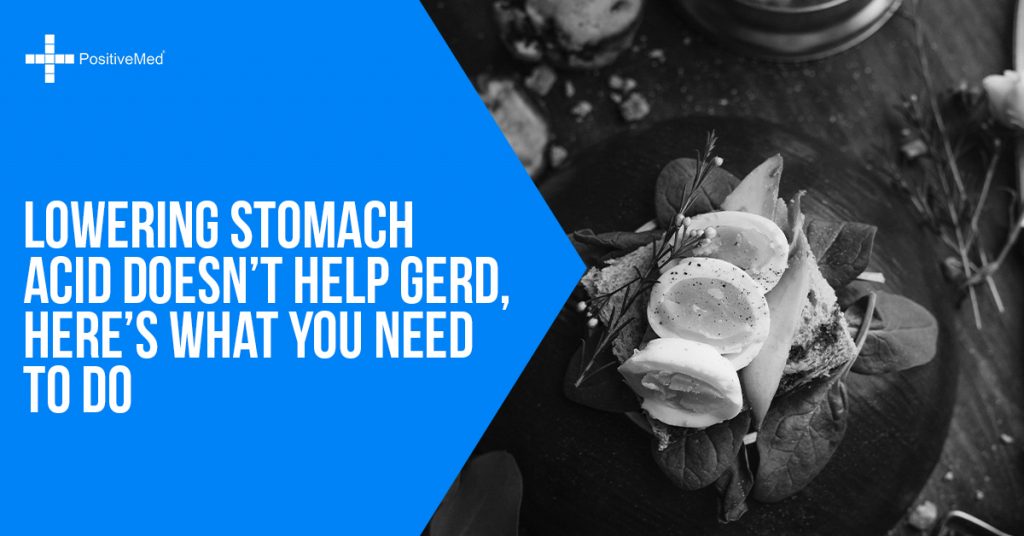Acid reflux has a starring role in countless TV ads today. “Put the fire out with our specific anti-heartburn product!” shout the headlines. A man races forward with a fire hose and blasts a bowl of chili. But have you ever noticed that stomach acid suppression doesn’t really eliminate acid reflux? Symptoms may be reduced for a while, but GERD just keeps coming back up.
Acid reflux is defined as Gastroesophageal Reflux Disease, or GERD. GERD does not suddenly appear because someone ate a bowl of hot chili. In fact, GERD, with its symptoms of coughing, bloating and sometimes vomiting is a disease of unhealthy digestion, not a disease of too much acid at all.

What’s in the gut?
The millions of microbes living in your stomach have far more serious roles to play than anti-acid TV actors. They not only assist with digestion, but they have receptor sites. These receptor sites feature signal molecules, such as hormones and neurotransmitters. These hormones or lack of them directly effect mental health, as well as digestion.
When we think of mental health, we imagine brain tissue and neurons calling all the shots. Scientific American reported that: “Scientists are increasingly convinced that the vast assemblage of microfauna in our intestines may have a major impact on our state of mind.”
This poses the chicken/egg question: Which came first, TV ads for anti-depressants, or ads for anti-reflux products?
The way the TV ads approach GERD is to temporarily lower the production of stomach acid or, to go for the burn. In reality, acid is what the body needs more than anything. That is because the real reason for GERD may be an overabundance of a questionable bacteria. The bacteria thrive in low-acid conditions.
H. phylori and GERD
There is serious conflict about the role that H.pylori plays in digestive health. There is a lot of bad news about H.pylori, such as its high percentages in ulcer patients, 80-100 percent found in those with duodenal ulcers and 70 percent of those with gastric ulcers.
H. Pylori is thought to begin with infecting a person somehow, but no one knows exactly the mode of transmission. It is known that those living with family members diagnosed with H. phlori infection are often infected also. Eighty-five percent of those diagnosed have no symptoms, but some have the typical manifestations of GERD.
RELATED ARTICLE: Get Rid of Heartburn, Diarrhea, Bloating, and Reflux by Killing That Harmful Bacteria in Your Stomach
If stomach acid suppression with medications doesn’t help GERD, what does?
Beneficial bacteria. Beneficial bacteria are found in certain foods.
Fermented foods
Most of us assume that eating some yogurt from a local market will work well, but most of these highly sugared products contain scarcely any probiotic bacteria at all. A good plan for yogurt would be to purchase raw, whole milk and yogurt culture and make your own. There are yogurt makers on the market, but it is very simple to make in an insulated container.
Besides yogurt, raw sauerkraut is very effective because the juice stimulates the stomach acid that is really lacking in GERD. Adding pickles, kombucha and kimchi is very beneficial for restoration of good digestive flora.
Whole foods
Most people with acid reflux note that suffering begins with consuming refined products. Whole grains such as brown rice, oats, legumes and quinoa are very important to healthy digestion.
Eggs are great because they are high in amino acid L-glutamine. L-glutamine is essential for tissue repair and a proper immune system. Scrambled eggs combined with a whole food such as black beans makes a delicious and healthful meal.
Herbs
Ginger is a potent weapon against H.pylori, and thus can even prevent ulcers from forming. Chamomile soothes conditions like irritable bowel syndrome, and it has antibacterial properties as well as an anti-inflammatory effect.
READ ALSO: She Spent Years Trying to Heal Her Gut, Brain Fog, and Fatigue. Here’s What Finally Worked
What should a person combating GERD avoid?
Some of the food and drink we consume habitually have a negative effect upon GERD recovery. Coffee and soda stimulate acid reflux, and smoking or using tobacco products do the same. Fatty or processed foods promote an immediate response of acid reflux in many people.
A condition like Gastroesophageal Reflux Disease is an indication of unbalanced digestive flora, either through medications, improper foods, or H.phylori. Conquering GERD takes knowledge of proper foods and persistence, but restoring digestive bacteria with whole foods will result in much better health and mental well-being.






